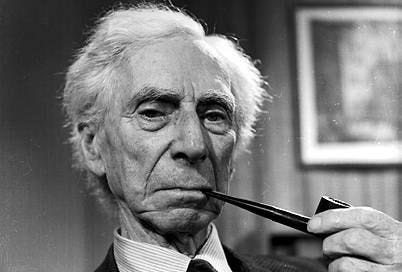Why I Am Not a Christian, Muslim, Jew, or Anything like That
My title alludes to Bertrand Russell’s “Why I Am Not a Christian”, but my reasons are different. Russell’s main reasons, as I recall, were (a) he doesn’t think there is a God and (b) he thinks Jesus was morally imperfect (though still very good). I think there might be a godlike being (I think omnipotence and omniscience are impossible, but there could still be a highly knowledgeable and powerful creator), and I don’t have anything much to say about Jesus’ character. Those things aren’t among my chief concerns.
1. The Concerns of Primitive Humans
While I’m agnostic about godlike beings, I disbelieve every world religion that I know about. I think the main reason is that the contents of specific religious beliefs, especially things you find in texts such as the Bible or the Koran, sound to me a lot more like the sort of things that primitive tribes of humans from the past would make up than the sort of things that a supreme being would say.
Let me first say something about the creator. I don’t know much about this being, if he/she/it exists. (Obviously, God does not have a biological sex, but I guess I’ll follow the tradition and call God “he”.) But if there is one, this is what I know. He created this universe 14 billion years before any human being ever existed. He may have existed for infinite time before that. After causing the Big Bang, he watched the birth of ten thousand, million, million, million stars that coalesced out of the gases produced by the big bang over millions to billions of years. After waiting one hundred million human lifetimes for the Earth to form, he then watched the lives and deaths of millions of entire species on this planet alone, before ever the first human walked the Earth.

This is the being that, I’m supposed to believe, is going about choosing favorite human tribes and telling them to fight other human tribes? Getting jealous of fictitious other gods? Becoming enraged when people fail to worship and obey him? This being is obsessively preoccupied with which humans are having sex, in what ways, with which other humans? And about maintaining human traditions and power structures?
I mean, come on. Is there any way it could be more obvious that this is primitive human tribes projecting their small, parochial concerns onto God?
[Edit: I tried telling this to someone, and he seemed to have no idea why I was talking about the age of the universe, etc. So to make the point more explicit: the creator of the universe would be an awesome being, not a petty child.]
2. Analogies
A Nigerian prince sends you an email, full of spelling and grammatical errors, asking for your bank account details so he can send you $40 million. You know nothing about Nigerian politics or how international bank transfers work, but … come on. This message just looks exactly like what a scammer would say. I don’t know what an actual Nigerian prince would say, but ... not that.
Someone in 2016 said, “Donald Trump is a poor man’s idea of a rich man.” A poor man might think, “If I were rich, I would have gold all over my house. I’d fire people rudely and talk shit to people all the time, ha! And I’d put my name in giant letters on a huge building!” But this is not what actual rich people (other than Trump) are like.
Analogously, the God of the Bible and the Koran is a primitive human’s idea of a great being. It’s what the primitive human imagines he would be like if he had ultimate power. “I’d make everyone worship me! If anyone didn’t want to, I’d torture him. Forever. I’d make my tribe defeat our enemies. And I’d kill the gays, because--gross!”
But that is not what an actual supreme being would be like. He would not be like a human drunk on power.
Imagine looking down at two ant colonies fighting in the dirt. You would not pick a favored colony and then start stomping on the other colony, unless you’re a child. You would not become super-concerned about exactly how the ants are doing things in their colony, whether they’re reproducing in the right way, whether the ants believe you exist, or whether they are showing respect for you.
If there is a god, we are to God as the ants are to us.
3. What Would God’s Book Be Like?
I don’t know what would be in God’s book if he wrote one. But I wouldn’t expect it to read like the stories and admonitions of primitive tribesmen 2000 years ago. I wouldn’t expect it to evince exactly the biases that people of that time had. I would think that it would stand out somehow as the most remarkable of all books ever written. I would expect to find it the most illuminating and profound and insightful thing that I had ever read.
I cannot say what would be in it more specifically, because it would contain insights and lessons that I am unable to think of, because I am not God.
Sometimes, I have the experience of gaining deep, new insights and new ways of understanding the world from reading books. I would say that I had that experience from learning the currently accepted theories of calculus, and physics, and economics – all things that other, great thinkers came up with that I could not have discovered on my own. But God must have known all those things, and everything else that we have discovered, long before the Bible was written. He knows everything that we’ll discover for the next ten thousand years too. So if I read a book written by God, I would expect that same experience to happen, but in a much greater degree – I would expect to find deep insights, to feel my mind expanding, and to sense an enormous intellect (like when you read Isaac Newton, but more so).
In fact, I never feel anything at all like that when I read religious texts. There is never anything I could not have thought of, or even that primitive humans 2000 years ago could not have thought of.
Now, maybe for some reason God would not have told us any of the amazing scientific and mathematical truths that we were to discover over the next 2000 years (even though he could easily have done so and it would have demonstrated his authorship a lot more convincingly than just insisting “this is the word of God”). I don’t know, maybe he wanted us to discover all that stuff for ourselves. But then I would think at least he would give us advanced ethical and political lessons – if not, I don’t see what the point would be of giving us a book at all. E.g., maybe he could have told the primitive humans who were around when he showed up that it wasn’t a good idea to chop each other into pieces just because they disagreed about what he said. Maybe he could have let them know that he didn’t actually have a favorite tribe, and he didn’t care about how consenting adults were having sex with each other.
In fairness, there is some of that in the New Testament – some moral lessons that seem more advanced than people’s views at the time. See esp. the Sermon on the Mount (https://www.biblegateway.com/passage/?search=Matthew%205-7&version=NIV).
But at the same time, there are many more lessons that seem benighted in just the way that people of that time were benighted. I am not assuming here that I know the correct moral system, only that certain things (which were held 2000 years ago but given up as misguided or barbaric long ago) are definitely not correct. E.g., there are the passages about killing people for adultery, homosexuality, disrespecting parents, and working on the Sabbath; the passages apparently accepting slavery; the passages supporting genocide; etc. (http://owl232.net/biblequotes.htm).
I’ve given more attention to Christianity than other religions because I am more familiar with Christianity. But of course the Koran has similar problems, and the hatred directed toward people who don't agree with the religion is striking. Again, this just does not at all sound like a supreme being talking.
Qualification: Eastern religions are less subject to this critique, as they don’t seem to be so concerned with whom you can have sex with, or how God is going to beat your ass for not worshipping him, or how you have to obey the dominant humans in the existing social power structure. The above is mainly about theistic religions wherein humans project their limited concerns onto God.





